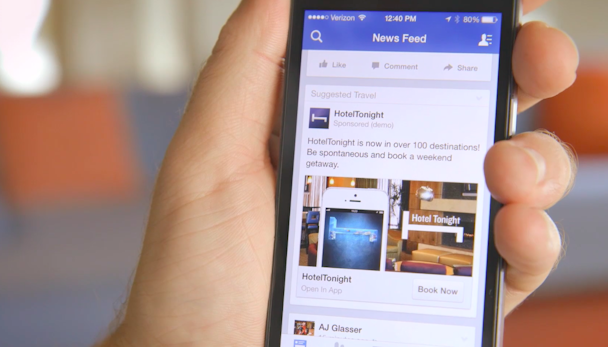Facebook vows to be more transparent about metrics after admitting more miscalculations
Facebook is opening itself up to more third party measurement in a bid to stop the spread of negative sentiment among advertisers that’s building in the wake of its admission of more miscalculated metrics.

Marketers and publishers will be affected by the bug
Concerns that the social network can’t continue to shun third party measurement and effectively ‘mark its own homework’ have come to a head after trust in it appeared to have been knocked following today’s revelations. It admitted that bugs and calculation errors in its systems had rendered some of the metrics coming from its Instant Articles, video, referrals in Analytics for Apps and Page Insights products incorrect.
As it came clean with the errors, the social network moved swiftly to reassure advertisers that it is overhauling its measurement tools to fix the issues alongside a move to offer more third-party measurement to advertisers. Part of this shift, includes the formation of a Measurement Council and increased third party verification such as Moat and Comscore, both of which have worked with the social network in the past.
To clarify the discrepancies, the business referred to one of its Pages dashboards, the summary number showing 7-day or 28-day organic reach was miscalculated as a simple sum of daily reach instead of de-duplicating repeat visitors over the those periods. Despite this, it claimed the vast majority of reach data in the Page Insights dashboard was unaffected, including all the graphs, daily and historical reach, per-post reach, exported and API reach data, and all data on the Reach tab. It added that the “de-duplicated 7-day summary in the overview dashboard will be 33% lower on average and 28-day will be 55% lower; data in other fields is unaffected. This bug has been live since May; we will be fixing this in the next few weeks. It does not affect paid reach”.
The social network also admitted that it had been “undercounting” metrics for completed, or 100%, video views – because the audio may play for a bit longer than the video does. It noted that this could lead to “roughly a 35% increase in the count of “video watches at 100%”.
There was also a miscalculation on Facebook Instant Articles content, whereby the average time spent on a post had been over-reported by 7% to 8% on average since August last year. This was due to it calculating the average across a histogram of time spent, instead of reflecting the total time spent reading an article divided by its total views
Lastly, Facebook admitted that had miscalculated Referrals in its Analytics for Apps by around 6% for its most frequent users. It means that it was counting clicks that went directly to an app or website but also clicks on posts via apps or websites, including clicks to view photos or video.
Crucially, Mark Rabkin, vice president of Facebook’s core ads team, claimed that the metric bugs had no effect on how marketers were being billed. However, they are vital in the planning and distribution of content on the social network so the impact of such anomalies cannot be underplayed.
Reacting to the news, GroupM issued a statement: "We’re encouraged Facebook is clarifying metrics and seeking input from customers. Today’s developments stop short of full third-party measurement which we still believe crucial to advertiser confidence in any market. As Facebook continues to seek collaboration on metrics, we will continue advising this concern."
It's not clear the number of advertisers impacted by this error, or which specific brands have been hit the hardest.
Amends to four metrics in a swarm of 220 might seem insignificance but the fact that Facebook is becoming more transparent could be a sign of things to come. While it is undoubtedly a juggernaut in the online media space, averaging about 50% revenue in advertising over the last two years, its meteoric growth is slowing. It smashed analyst expectations in its latest quarter but the shares fell 7% in extended trading after it admitted it won’t be able to repeat the performance. Consequently, the last thing Facebook needs is a dip in trust from advertisers that could see many of those spenders managed their resources with and around Facebook.
Having a broader pool of measurement partners could placate some of those concerns, while the so-called Measurement Council – comprised of advertising companies and measurement firms – will look at how the social network could be more transparent moving forward.
WPP boss Sir Martin Sorrell has been vocal about the damaging effects of Facebook "marking its own homework" and has repeatedly called for third-party verification of the data it increasingly relies on.
But, arguably, the problem is not Facebook's alone to solve. While marketers can make (more) calls for greater transparency, they need to open their eyes to the fact that there has been a chronic undervaluing of media knowledge within brand marketing teams. This scandal is further evidence of the problem that modern marketers are today facing - they simply can't interrogate the value of what’s being handed to them - but that steps must be taken to ensure they are capable of doing so in the future.
Nestle-owned Nescafe recently told The Drum that despite Facebook's measurement issues, it was planning to invest more into the platform but that it is discussions over the steps the company needs to take to deliver the transparency Nestle wants. This was before these latest revelations of mismeasurement and Nescafe was unavailable to comment at the time of writing.
Despite its dominance over the media industry, Facebook is still actively working out kinks in its offering, from the fact fake news regularly surfaces in its trending news bar, the news that a one-off error declared more than two million users dead recently, and additional reports that its ad network was able to target users based on ethnicity groupings.

